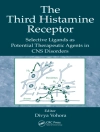This book presents the ‘state of the art’ of biomarkers research in neuropsychiatric conditions, from dementia to eating disorders, as well as providing methodological, practical and ethical issues related to the development of biomarkers. Biomarkers have revolutionized clinical research and practice in most fields of medicine, but psychiatry has lagged behind. However, in the last decade, there has been a growing expectation that biomarkers will advance and, ultimately, reframe psychiatry research and practice. Biomarkers might inform about diagnosis, therapeutics, prognosis, contributing to a ‘personalized medicine’. Understanding their meaning, possibilities and limitations will help clinicians, researchers and students in the related areas navigate and excel in the challenging and ever changing field of neuropsychiatric disorders.
Spis treści
1. Biomarkers in medicine and psychiatry: an overview.- 2.- Genetic biomarkers of psychiatric disorders.- 3.- Neurophysiological biomarkers.- 4.- Structural neuroimaging biomarkers in psychiatry.- 5.- Functional neuroimaging biomarkers.- 6.- PET biomarkers in psychiatry.- 7.- Digital markers of mental health problems: phenotyping across biological, psychological and environmental dimensions.- 8.- Staging biomarkers in psychiatry.- 9.- Biomarkers of delirium and cognitive impairment.- 10.- Fluid-based biomarkers of Alzheimer’s disease.- 11.- Neuroimaging biomarkers in Alzheimer’s disease and related disorders.- 12.- Biomarkers of cognitive decline and dementia in Down’s syndrome.- 13.- Biomarkers of schizophrenia.- 14.- Biomarkers for bipolar disorder.- 15.- Biomarkers in anxiety disorders.- 16.- Biomarkers in obsessive-compulsive spectrum disorders.- 17.- Sleep disorders: identifying biomarkers and clinical applications.- 18.- Biomarkers in substance use disorders.- 19.- Biomarkers of traumatic brain injury and related neuropsychiatric disorders.- 20.- Biomarkers in psychiatry: conceptual and methodological challenges.- 21.- Ethical issues related to biomarkers in psychiatry.
O autorze
Antonio L Teixeira is Professor of Psychiatry and Neurology at the University of Texas Health Science Center at Houston. He also a professorial appointment at the Institute of Education and Research Santa Casa BH, Belo Horizonte, Brazil. Dr. Teixeira did medical training in psychiatry, internal medicine and neurology, also training in cellular biology and immunology. Besides investigating the role of immune mechanism in the pathophysiology of cognitive and behavioral symptoms, he has investigated fluid-based biomarkers in different neuropsychiatric conditions. He has edited several books, including ‘Immunopsychiatry’ (Oxford University Press, 2019), ‘Perinatal inflammation and adult psychopathology (Springer, 2020).
Natalia P Rocha is an Assistant Professor at the Mitchell Center for Alzheimer’s Disease & Brain Disorders, Department of Neurology, University of Texas Health Science Center at Houston. Dr. Rocha is a Pharmacist with training in basic and translational neuroscience, especially in the field of Neuroimmunology. In addition to studying neuroimmunology/inflammation associated with neurodegeneration, Dr. Rocha has dedicated herself to investigating biological and neuroimaging markers related to neuropsychiatric disorders.
Michael Berk is the Alfred Deakin Professor of Psychiatry, School of Medicine, Deakin University, Director of the IMPACT Strategic Research Centre at the same institution, and Honorary Professorial Fellow at Melbourne University and Monash University. Dr. Berk 's major interests are in the discovery and implementation of novel therapies and risk factors and prevention of psychiatric disorders, especially mood disorders. Dr. Berk is a world-renowned psychiatrist, with major contributions to the field and an impressive track of original publications.












